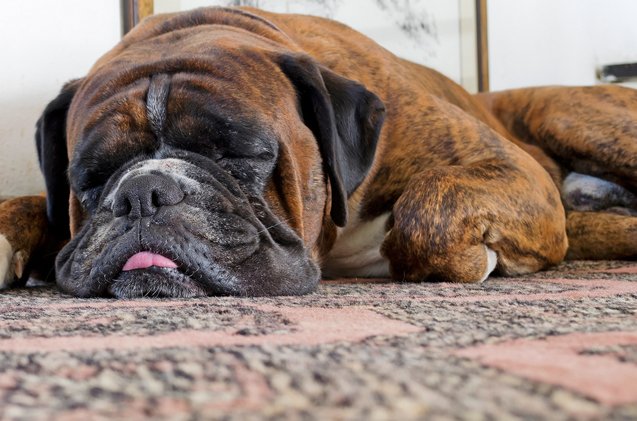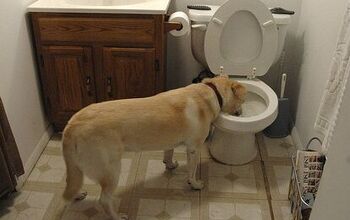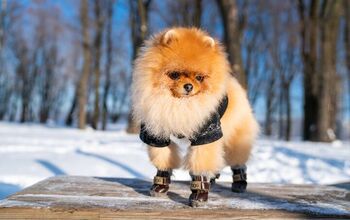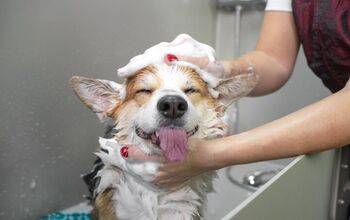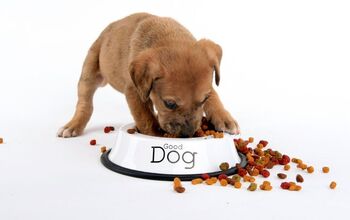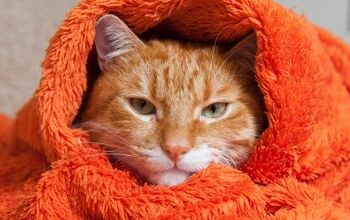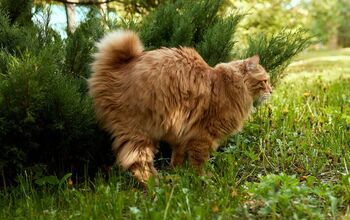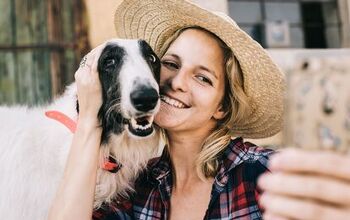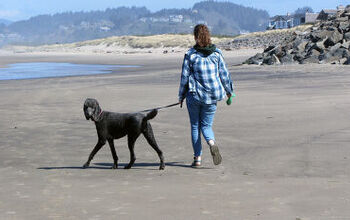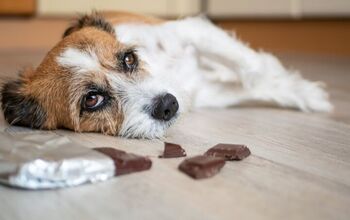How To Stop Stinky Dog Farts

We’ve all been there. You’re hanging out with your pup and minding your own business. Then it happens. The dreaded Fido farts. Oh sure, it’s cute at first. When you’re dog’s a puppy those tiny toots yield plenty of laughs from the whole family. Eventually, that novelty wears off. Soon you’ll find yourself in a very different state of mind and muttering things to yourself like, “Urgh! What’s that smell? Did it just come out of the dog? Gross!” Everyone blames rotten smells on their dog to avoid taking responsibility during tricky fart scenarios. But what happens when you’ve got a legitimate problem with dog farts? It’s no laughing matter. Excessive doggy tooting can ruin your relationship with your pet if you don’t take action!
Thankfully, the fight against canine flatulence isn’t hopeless. There are solutions out there that will cut down on all of the trumpet noises and stink clouds. In fact, there are several factors that can lead to stinky dog farts. Gas can build up when your dog swallows large amounts of air while gulping down his food. Certain types of food can also give your dog the toots. They tend to be the usual offenders that also make your own butt sing with bride. You know, beans, cauliflower, cabbage, and soybeans. These sorts of foods are all highly fermentable. Your dog’s thunderous blasts can come from food intolerance, such as sensitivities to wheat and corn.
Most of the time, if your dog’s farting is clearing rooms, it’s because that’s a sign of what is going on inside his gut. That’s right. Good gut health is what leads to fart reduction in your dogs. Excessive (and stinky) gas is most often caused by too much fermentation in your dog’s digestive system. Fermentation happens when your dog breaks food down in his gut but if there’s excess bacteria, microorganisms or yeast in his microbiome, you’ll have excess fermentation and thus, excess gas. And you know that gas has gotta go somewhere. You just get to be the lucky recipient of all the nasties inside his gut coming out. That’s why those noxious farts are so noxious. A healthy dog gut will have a good balance of helpful bacteria (probiotics) and microorganisms in his gut and his butt won’t smell as much.
Additionally, dog farts can also be caused because of malabsorption syndromes which are typically due to the incomplete digestion of carbohydrates. Finally, there are just some dogs out there who are more prone to farting. If you own a Boxer, you know what we’re talking about. They are champion level farters with posteriors so prestigious that it’s almost admirable.
First off, make sure that it’s not the result of a medical issue. If you notice that your dog is pooting all the time, you’d better bring that pup and his troublesome bum to the vet. There may be something else a lot more serious going on. While it is totally normal for a dog to have gas, if there is too much of it, it might be the result of a change in your pet’s diet. Or it might be caused by something that your dog ate without your knowledge (such as something spoiled that his poor tummy can’t properly digest). Your vet can always help you if your dog doesn’t seem to be digesting his food well and a change in diet might be necessary. Also, your vet might need to test for what is known as malassimilation (a serious condition with farty warning signs that needs to be treated carefully). If your dog is obese or overweight, or sedentary, he might be more prone to farting more than normal. So your vet might simply recommend weight loss and more activity. Regardless, it’s important to ask your vet for help with any excessive doggie farting problems rather than trying to take matters into your own hands. Nobody understands dog farts better than a vet. (Photo credit: ©iStock.com/adogslifephoto)
It might be a wise idea to skip dog foods that contain ingredients such as wheat, soy, and corn. These are all major fart generators. You can also try eliminating peas, dairy, and beans from your pet’s diet to see if that helps to reduce the toots. Plus, dog foods that contain too much fat might cause your pooch to fart more than normal too. Stick with foods that include high-quality proteins and non-allergenic ingredients. However, when in doubt, always consult with your veterinarian or a pet nutritionist who can guide you towards a diet that will contain ingredients that are easy for your dog’s body to digest. There are plenty of foods out there that your dog will be able to consume fart-free. It’s just a matter of finding them. (Photo credit: ©iStock.com/ArthurGraphics)
In general, it’s a good idea to just say no to table scraps. Human food, including spicy foods, can cause dog farts. So, if you’ve been feeding fido from the table, those treats might have been going straight to his butt. It’s a good idea to avoid feeding your fido table scraps as a general rule. Dog treats are another farty culprit. So, don’t give your pup too many dog treats, as this can lead to gas build up in the digestive track. What goes in, must come out after all! (Photo credit: ©iStock.com/dmitriko)
Fruits and vegetables can also be added to your dog’s diet too cut down on his toots. Just make sure that the fruits and veg are safe from him to eat before you feed them to your dog (ex: grapes are bad, bananas are good, etc.). Some fruits and veggies are considered toxic to pets, so do your research before adding any new treats or ingredients to your pooch’s diet. And remember–introducing more fiber will ususally introduce more fart juice. BUT if your dog’s gut is healthy, it should be able to handle that fiber and use it for food for the healthy and beneficial probiotics in his microbiome! (Photo credit: ©iStock.com/JBryson)
It might also be worth considering going natural with your pup’s diet. There are many natural products on the market that will help with dog toots. Just a few examples include Pimpinella anisum, Foeniculum vulgare, Magnesium Phosphate, Carbo veg and Nux vomica. Always consult a vet before using any of these products on your dog though. There are potential issues that could pop up, depending on the product. (Photo credit: ©iStock.com/tverkhovinets)
If you’re completely overhauling your dog’s diet to combat the digestive issues, do it slowly. A gradual change will cut down on digestive problems such as diarrhea and vomiting. A sudden change will lead to even bigger problems than the clouds of gas that you are currently dealing with. (Photo credit: ©iStock.com/Pietus)
Don’t mix your dog’s food. This is a dangerous game to play and one that can lead to more eye-watering farts. If you need to switch your dog’s food, you’ll want to do it slowly and gently over the course of a few days with little bits at a time. Otherwise? Get the gas-mask! (Photo credit: ©iStock.com/JPeragine)
The dog food you decide to go with shouldn’t have any artificial flavoring, additives, and preservatives. It’s more important than ever to be a label reader for the food you’re giving your dog. Too many times, companies will try go wow you with words like ‘natural’ and ‘the first ingredient is meat’ but then when you look, there’s still a lot of UNnatural ingredients and the first ingredient is often a meat FILLER. Or meat that is byproduct and considered not okay for human consumption. In general, if it’s deemed bad to feed it to a human, you shouldn’t consider it for your dog either. We know that sounds harsh, but the truth is…they just aren’t natural and could be causing those noxious fumes. Lousy science! (Photo credit: ©iStock.com/Kippersbum)
Ask your vet about the enzyme dietary supplements available for dogs. These supplements can boost your dog’s digestive system and cut down on farts. Dogs secrete their own digestive enzymes as they eat (as do humans) but as your dog gets older, they produce fewer. Sometimes what’s secreted is simply not enough to battle breakdown of today’s overprocessed dry kibbles, so an additional supplement can make a huge difference. In fact, when it comes to Leaky Gut (which often results in butt rot smell), it can be your dog’s food not being broken down enough that leads to the problem. (Photo credit: ©iStock.com/Ksuksa)
Remember how we mentioned that excessive farting in a dog might be caused by the fact that your is overweight or leading a lifestyle that is sedentary rather than active? Well, for these reasons, making sure your dog gets plenty of exercise is a great remedy for excessive dog farts. Daily walks, play time and other activities promote healthy digestion. Get the entire family involved so that you can take steps towards keeping your dog physically active throughout the day. Obviously, you don’t want to overdo it, so work with your pooch rather than pushing him too far too fast. You can talk to your veterinarian for guidance, especially if your pet needs to lose some weight (your vet can recommend exercises, as well as dietary changes for slimming down in a healthy and safe way). And you can incorporate the use of a variety of toys that will give your dog a chance to be active both indoors and outside every day. Be consistent with your exercise regimen and you’ll smell a lot of improvements. (Photo credit: ©iStock.com/Zvonkomir)
Finally, you can always try a product like Bernie’s Perfect Poop. This dietary supplement for canines is designed to provide digestion support to your pooch. Many of the suggestions above work great in combintion and that’s what Perfect Poop does. It can reduce everything from stinky farts and bad breath to stool odour (aka all of the smells that could be spoiling your relationship with your pup). Who wouldn’t want that?! Plus, this product can even help improve the firmness and quality of your pet’s stools, and it can support the immune system as well (there is a connection between gut health and immune health, after all). Gluten free, grain free, non-GMO, natural, and made in the United States, Bernie’s Perfect Poop contains fiber, prebiotics, probiotics, and enzymes.
Fiber is good for your dog so that it can regulate the stool going through your dog’s gut. This means that there’s not enough time for too much of the fermentation process to occur as he’s digesting. Additionally, the prebiotics and probiotics that Bernie’s Perfect Poop has are hardy enough to make it through your dog’s digestive system. All too often, you’re paying for pricey pre- and probiotics that just don’t have the ‘oomph’ to make it through your dog’s harsh digestive system and they’re not strong enough to stand up to his stomach acids. It’s true that not every probiotic is created equally. Digestive Enzymes also make sure that your dog’s food is broken down well Many foods contain digestive enzymes but they’re also not super potent sometimes because they are so heavily processed when being cooked into your dog’s food, they too aren’t strong enough to do a good job of breaking your dog’s food down so it doesn’t become a poisonous butt-weapon after.
Perfect Poop combines all that’s needed for a healthy dog gut and that’s a major step in preventing killer dog farts.
The addition of cheese in the formula makes this a tasty addition to your dog’s diet, helping to ensure that your pooch will love to scarf it down. Just follow the directions for dosing based on your pet’s weight, and then mix it into or on top of your canine companion’s food.
Do you have a problem with dog farts? What have you done to combat the problem (other than using air fresheners)? We’d love to hear your tips on this stinky issue. Leave your thoughts in the comment section below and together we can win the battle between our noses and our dog’s butts!
We are committed to finding, researching, and recommending the best products. We earn commissions from purchases you make using the retail links in our product reviews. Learn more about how this works.

Amy Tokic, Editor of PetGuide.com, is a passionate animal lover and proud pet parent of Oscar, a Shih Tzu/Chihuahua cross, and Zed, a Japanese Chin. Her love of animals began in kindergarten, when she brought her stuffed dog Snoopy into class with her every day. Now, she writes about her adventures in pet ownership and tirelessly researches products, news and health related issues she can share with other animal enthusiasts. In her free time, Amy loves perusing used book and record stores, obsessing over the latest pet products available and chasing squirrels with wild abandon (a habit attributed to spending too much time with her pooches).
More by Amy Tokic



